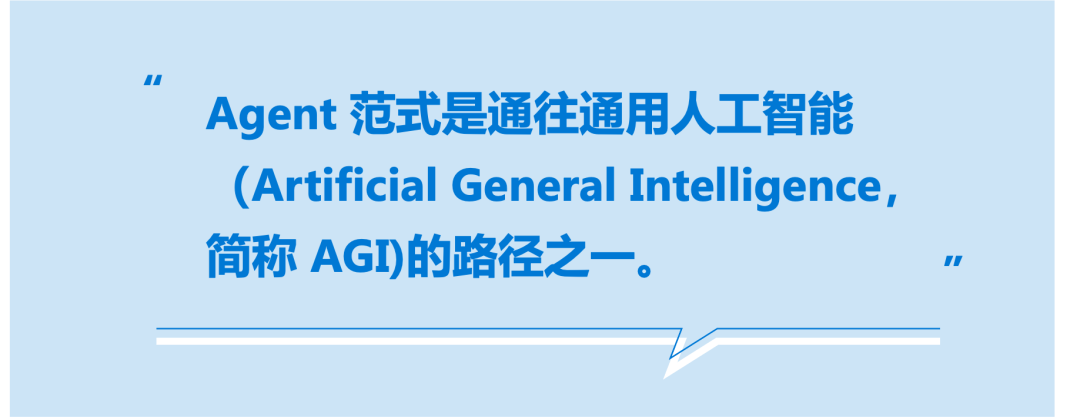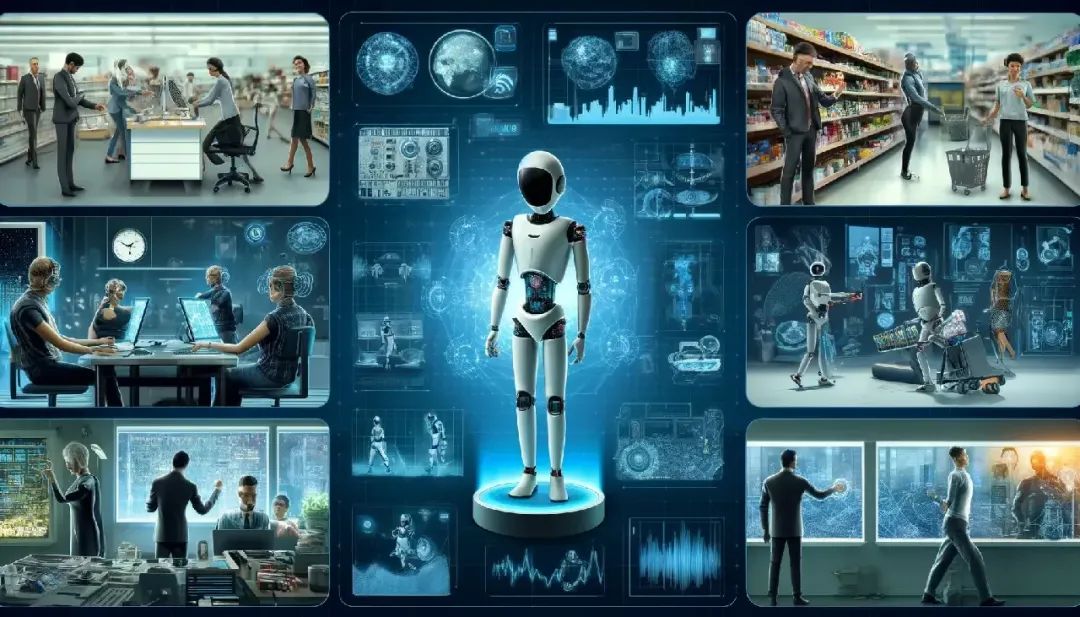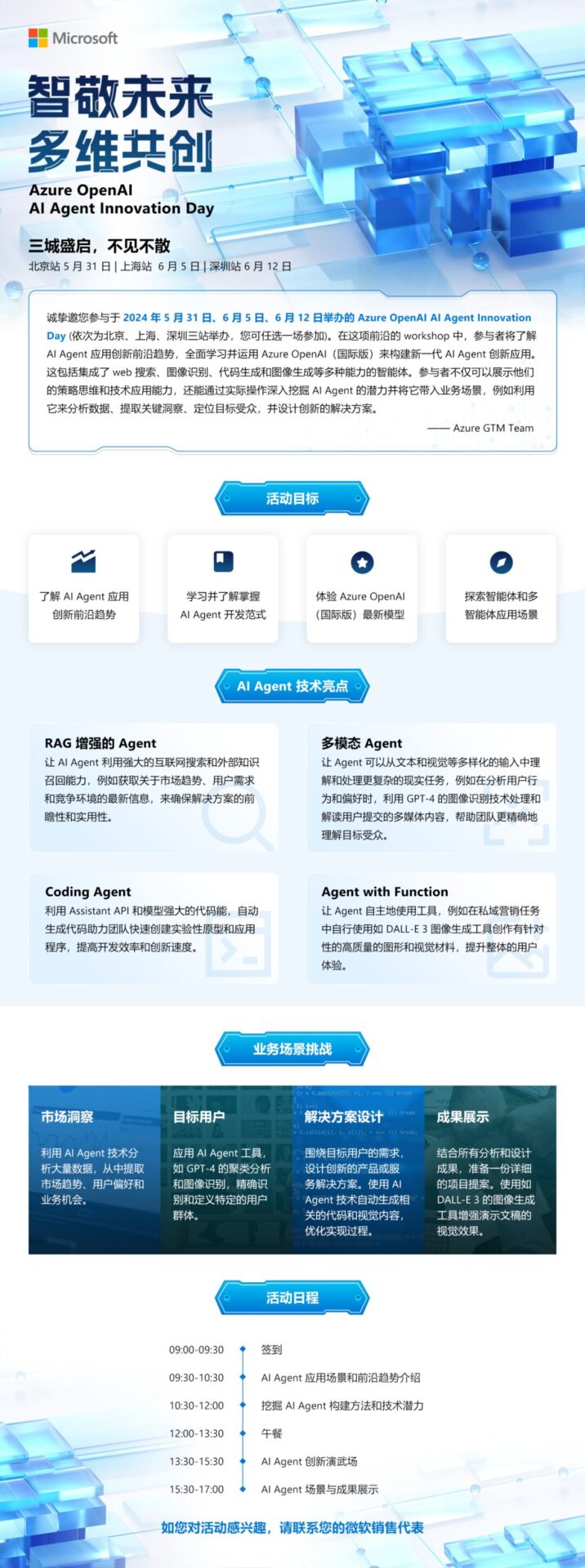

In the technological wave of the AGI era, AI Agents are regarded as the forefront of interactive large language model applications. They transform large models from mere responsive generation tools into intelligent systems capable of acting independently in complex and dynamic environments, thereby unleashing greater potential.
#01
Stronger Interactivity and Perception Capabilities
AI Agents differ from traditional large model AI applications by possessing advanced perceptual abilities in open environments. By integrating multimodal inputs (such as visual, auditory, and sensor data), AI Agents can achieve a more comprehensive understanding of their surroundings and respond more accurately and adaptively. This enhancement in perception allows AI Agents to demonstrate excellent application potential in areas such as customer service, remote operations, and complex system monitoring.

#02
Dynamic Response and Proactivity
Callable AI application systems typically perform well in fixed, structured workflow tasks but struggle in unpredictable environments. The design philosophy of AI Agents is to break this limitation and empower AI systems with a dynamic agency role. They can not only actively gather information but also make strategic adjustments and action choices in changing environments. This feature enables AI Agents to provide better experiences and more efficient solutions in application scenarios such as executing long-chain tasks, complex decision-making, and personalized interactions.
#03
More Universal Business Domains
In a business environment, companies that fully leverage AI Agents can often achieve more automated business processes, significantly improving efficiency and reducing costs. For example, in the retail industry, AI Agents can analyze consumer behaviors and preferences from diverse data channels, automatically providing product selection suggestions and optimizing marketing strategies. In manufacturing, AI Agents can assist in managing production lines, sensing equipment failures, and generating optimized production suggestions. These applications not only enhance operational standards but also bring significant economic benefits to enterprises.

#04
Common Characteristics of AI Agents
The successful application of AI Agents often relies on the comprehensive qualities of large models, which include complex reasoning abilities, effective task understanding, precise instruction following, and the capacity to handle complex decision-making tasks and detailed professional content. The implementation process simulates human cognitive and behavioral processes, allowing for the independent execution of complex tasks without direct human intervention. Common characteristics include:

AI Agents typically possess reflective reasoning capabilities regarding context, enabling them to not only respond instantly based on given information but also engage in complex task planning and strategy formulation. This ability allows AI Agents to evaluate past behaviors and understand their outcomes, thereby adjusting their next action strategies. For instance, in automated customer service systems, AI Agents can analyze historical dialogues and reflect on interaction emotions to better engage with customers.

Multimodal capability is another significant feature of AI Agents driven by large language models. This flexibility refers to the ability of AI Agents to process and integrate data from different input modes (such as text, images, sounds, etc.) and to output flexibly based on task requirements or environmental changes. This characteristic is particularly important in multitasking environments, such as a smart home agent that may need to parse voice commands, image information, and other sensor data simultaneously to provide personalized services like voice interaction, device control, or entertainment interaction.

Large model-driven AI Agent applications increasingly include interactions with external tools, which can be software interfaces, data services, or resources on the internet. This greatly expands the capabilities of AI Agents, unlike Retrieval-Augmented Generation (RAG) applications, where external tool calls can dynamically utilize external resources to enhance functionality and efficiency based on task needs. This is determined by the model itself, rather than being preset by developers or users, marking a fundamental distinction.

Within the framework of large language models, AI Agents sometimes need to utilize code to enhance the precision of their operations and the reliability of their outputs. By writing and executing code, AI Agents can automate highly repetitive tasks with low error rates while maintaining high efficiency and low error margins. This capability is particularly valuable in scenarios requiring extensive data processing and precise calculations, such as education, financial information processing, and data analysis.
#05
Large Model-Driven AI Agent Development Paradigm
In the development of AI Agent applications, developers typically use large model application development frameworks such as LangChain, LlamaIndex, and Semantic Kernel, which provide built-in intelligent agent programming frameworks. These frameworks offer capabilities to rapidly build intelligent agent applications, such as ReAct, Web Search, and Retrieval.
Additionally, the Assistant API provides developers with a quick way to build multifunctional AI Agents. The Assistant API serves as the technical foundation for GPTs, enabling businesses or individuals to engage in the development of AI Agents.
For more complex application needs, multi-agent collaborative frameworks such as AutoGen provide efficient collaboration mechanisms among AI Agents, enhancing the functionality of individual Agents and allowing the interaction of multiple intelligent agents to solve problems.
These methods collectively form a diversified AI Agent development ecosystem, offering unprecedented flexibility and efficiency for businesses and developers, driving the practical application and innovation of AI technology. Let us explore the infinite possibilities of large model-driven AI Agents together and embark on a new technological future.
Azure OpenAI
AI Agent Innovation Day
We cordially invite you to participate in the Azure OpenAI AI Agent Innovation Day hosted by Microsoft. The event details are as follows. If you are interested in the event, please contact your Microsoft account manager to register.

